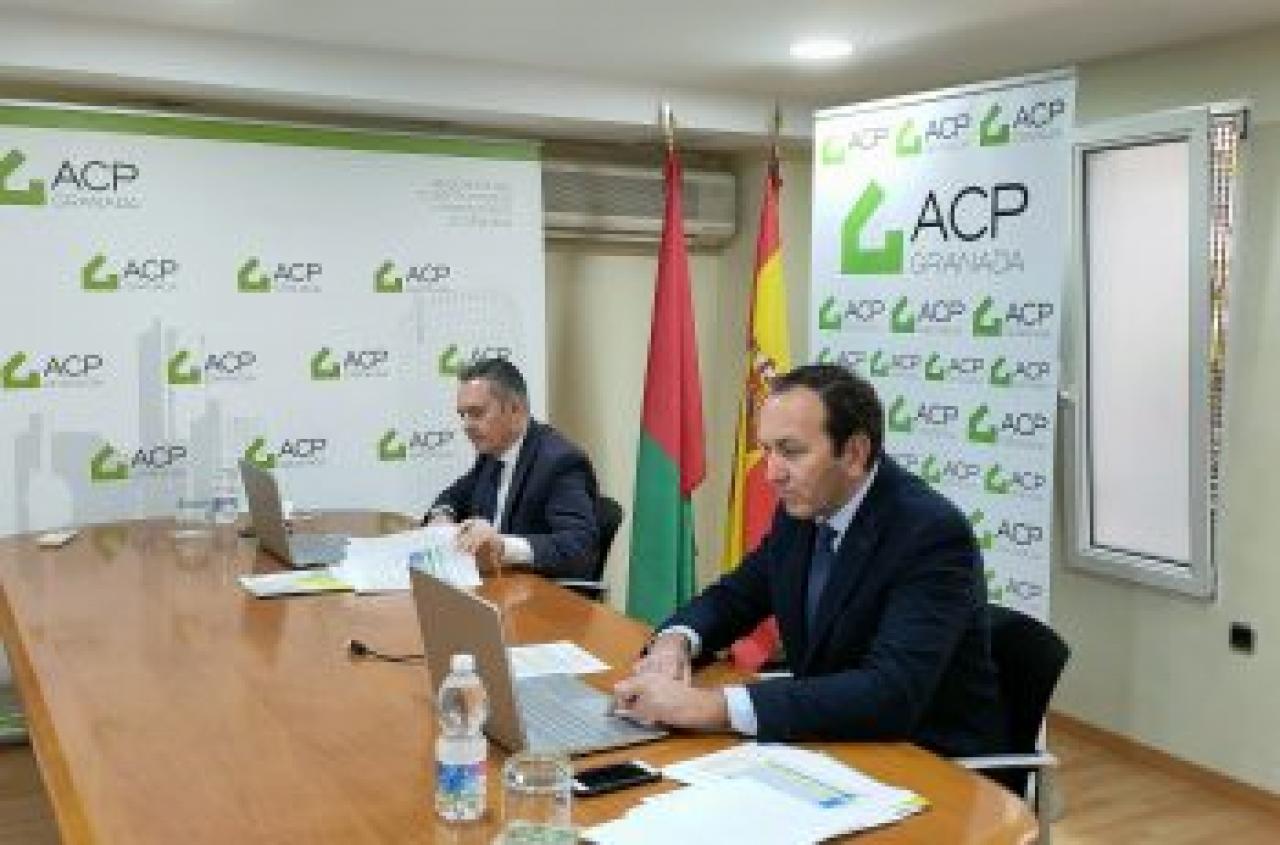
[[{"fid":"43926","view_mode":"default","fields":{"format":"default","field_file_image_alt_text[und][0][value]":"Francisco Martinez Canavate","field_file_image_title_text[und][0][value]":"Francisco Martinez Canavate","field_author[und][0][value]":""},"link_text":null,"type":"media","field_deltas":{"1":{"format":"default","field_file_image_alt_text[und][0][value]":"Francisco Martinez Canavate","field_file_image_title_text[und][0][value]":"Francisco Martinez Canavate","field_author[und][0][value]":""}},"attributes":{"alt":"Francisco Martinez Canavate","title":"Francisco Martinez Canavate","height":1920,"width":1920,"style":"height: 100px; width: 100px; margin: 10px; float: right;","class":"media-element file-default","data-delta":"1"}}]]The city of Granada is one of the 9 partners in URGE. One of Granada's most important stakeholders on the topic of circular construction is the Association of Builders and Promotors of Granada. Francisco Martínez Cañavate is manager at ACP Granada. The city of Granada spoke with him on the transformation of Granada's construction sector to circular economy, and what is needed to achieve this shift.
Undoubtedly, the selection of Granada to participate in this project means good news for the city. However, at the provincial and local level, there may be various obstacles regarding the proper development of a circular economy in the construction sector. What barriers or obstacles would you currently highlight?
It is evident that the rest of the province does not have the same availability or capacity as the capital to face certain advances. At a regulatory level, C&DW (Construction and Demolition Waste) management in the construction sector is quite regulated; however, on a day-to-day basis, that management may not be as adequate as intended. We must still raise awareness among many of the workers and entrepreneurs, who continue to hold old work habits in which an effective separation of the different wastes generated during the works is not taken into consideration; but it is also necessary to establish the necessary infrastructures, so that a regulated deposit can be made of the waste produced, in which the reusable fraction is extracted and can be used again as secondary raw material.
Why do you think it is important for the ACP to participate in this project and what do you think it will contribute to them? What added value and experience can the ACP or its associates bring to the project?
As an Association that encompasses a large part of the construction sector in the province, participation in the project offers a two-pronged approach, by being able to express the difficulties of C&DW in Granada, as well as proposing (in conjunction with people dedicated to other sectors) measures that should be taken into account in the political sphere, in order to improve and facilitate this task not only at the local level, but also in different locations throughout the province. As stakeholders with wide experience in the sector, we know first-hand the difficulties that our associates convey to us when carrying out the management of their waste in accordance with the provisions of current legislation, this being a valuable source of information to be provided.
Do you know of cases of good practices carried out by the ACP or its associates that could be transferred to the project?
ACP Granada acts as a catalyst for the various initiatives and standards centered around innovation, sustainability, materials and management between construction companies and developers, as well as giving visibility and promoting their implementation in an orderly and agile fashion. In general, the culture of sustainability and the circular economy is forming part of the DNA of companies, although there is still a long way to go, it is essential to reinforce actions aimed at disseminating and generating commitment in these areas.
Do you think that in the current construction sector there is enough knowledge and commitment to carry out an orientation towards a circular system? If not, what steps do you think should be taken to achieve this orientation? Do you think projects like URGE contribute significantly to raising awareness about the circular economy in the sector?
The initial steps towards this goal are already being taken. The construction sector is undergoing a period of renovation, and one of the improvements is aimed at the possible reutilization of other raw materials, as well as the use of those secondary raw materials. It is still undergoing implementation. From ACP Granada, in collaboration with the different professional associations or the Sustainable Construction Cluster of Andalusia, we try through informative talks to publicize the news of the sector regarding these matters, so as to make the sector more competitive and sustainable.
Projects such as URGE give greater visibility to a problem that has yet to permeate the entire population, and which contributes to the much-needed task of dissemination and awareness so necessary to reverse wasteful behaviors which have been carried out in the past.
Do you think that there is currently enough access to financing and economic resources for a circular economy in the sector? And do you think that current technology and technical knowledge in the province prove sufficient for this?
As I mentioned earlier, these changes are still in an initial phase. It is necessary to improve both the possibility of obtaining economic resources dedicated directly to this change (and for the technical training of workers), as well as the technologies used in waste management.
Regarding the life cycle of construction products, do you think there is enough emphasis on design so that materials can be reused?
To the extent possible, quite a few products already include that design, which allows for a new use after the initial one, but they are still not enough. To achieve a true circular economy every product on the market should bear this contingency in mind, especially since the regulations are already geared towards it.
In the short to medium term, what measures would you propose to promote circular economy in the sector in our region?
1. To promote information campaigns for a more reasonable consumption of resources, more adjusted to the needs.
2. To raise awareness among employers and workers to reduce the generation of waste and that those that are produced have an adequate separation and deposit for possible reuse.
3. To improve efficiency in the use of water, implementing technologies to optimize its use.
Interview by Laura Mostazo for the city of Granada
